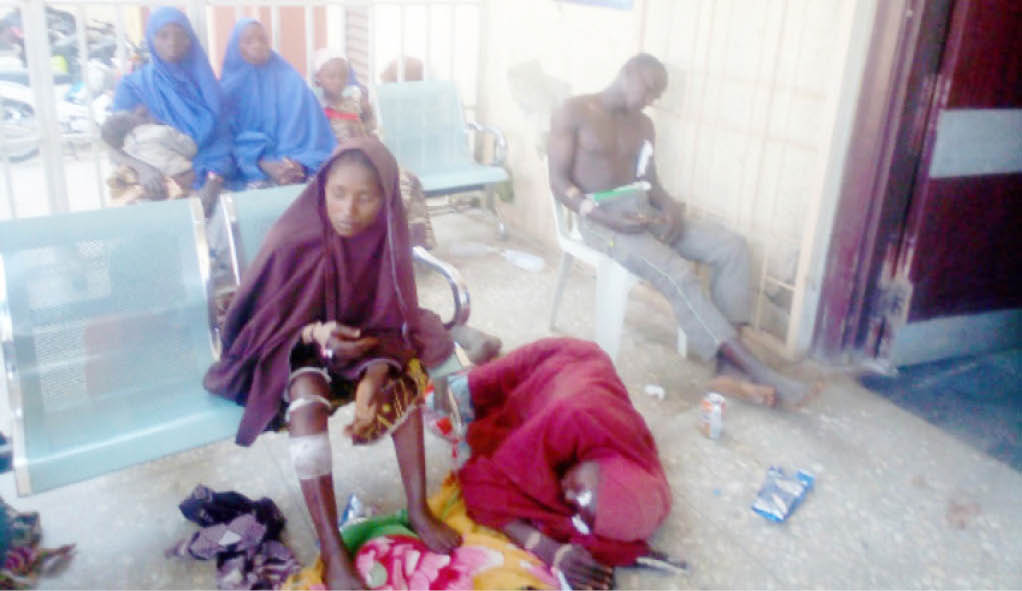Following the bomb attack on December 3, 2023, in Tudun Biri village in Igabi LGA of Kaduna State as Muslims gathered to celebrate the Eid el-Maulud, Governor Uba Sani said civilians were “mistakenly killed and many others wounded” by a drone “targeting terrorists and bandits.”
President Bola Tinubu delegated Vice President Kashim Shettima to visit the community and express his condolences. Therein, he directed a thorough investigation into the incident and called for calm.
The Chief of Army Staff (COAS), Lieutenant General Taoreed Lagbaja, also paid a condolence visit, where he stated that: “We are determined to prevent a repeat of this tragedy and reassure our people that their protection would be prioritised in the sustained fight against terrorists, bandits and other criminal elements.”
He also disclosed that he had ordered a thorough inquiry into the incident to ascertain and identify areas of deficiency that led to the disaster, adding that the findings of the investigation would guide the army in professionally seeking and applying lasting solutions to identified lapses and deficiencies in both human and Artificial Intelligence (AI) variables that would forestall a recurrence.
- Edu: Hijrah asks Tinubu to extend searchlight to other ministers
- What Supreme Court ruling meant for Zamfara security – CSOs
Notably, the Tudun Biri incident is not an isolated case, but when compared with similar incidents, the swift acceptance by the military and expression of deep concern and condolence by government officials to commiserate with the victims of the attack was comparatively better.
These “accidental” bomb attacks by the military can be traced. Starting from February, 2014, when a military aircraft dropped a bomb on Daglun village in Borno State, killing 20 civilians. On January 17, 2017, two bombs were “mistakenly” dropped on the IDP camp in Rann, Borno State, killing more than 200 people. In September, 2021, an air raid killed 10 people and wounded 20 others in Buhari village in Yobe State. The army admitted to the attack, saying it would set up a “board of inquiry.” Nothing has been heard of that since.
In all the incidents, a known pattern was established: security operatives drop a bomb on civilians, admit to the incident, government commiserates with victims, vows to set up an investigative committee and pledge to prevent further attacks. However, nothing will happen afterwards and the reports of the committees will remain unknown.
Looking at the frequency of the incidents during the last administration, if nothing tangible is established from the usual pattern, the administration of Tinubu will have a long and hard road ahead if they are to convince survivors and the wider citizenry that they have their interest at heart, let alone convince the international community to work with them in the fight against insecurity.
Leena Hoffmann, an associate fellow at the London-based think tank, Chatham House, told Al Jazeera that Nigeria’s security forces had not really learnt any lessons from fighting Boko Haram to apply to the evolving security situation across the North West.
Hoffman said, “It shows that the Nigerian military is incapable of introspection, of holding itself accountable and reforming itself to be a civilian protection force.”
Judging from the outcomes of the incidents, one has no option than to lean on this perspective.
In February, 2023, two members of the US House of Representatives Foreign Affairs Committee called on the president Joe Biden administration to halt $1bn in arms assistance to Nigeria following a report on the targeted killing of children by the Nigerian military. Although, expectedly, it was debunked by the previous administration, this administration needs to do more than debunking these foreign partners’ standpoints if it truly seeks support and collaboration.
The Speaker of the House of Representatives, Tajudeen Abbas, in his bid to foster parliamentary friendship groups, of which the US happened to be identified as the number one country, urged the US government to assist Nigeria in tackling insecurity and corruption when he met a US delegation led by the Chargé d’Affaires in Nigeria, Mr David Greene.
Beyond this, the legislative arm of government needs to also do some internal work in not only espousing their resolve to tackling the challenges, but to also show tangible outcomes of their work. As a vital departure from the usual antics, committees set up to investigate the Tudun Biri incident need to have realistic timelines, not as in the past when committees had open-ended timelines with opaque frames of reference thereby leading to vague outcomes.
It is, therefore, necessary that the speaker ensures that these committees present their recommendations to Nigerians.
Following the Tudun Biri incident, VP Shettima announced President Tinubu’s decision to rebuild the community under the Pullako Initiative – the president’s unique response as a non-kinetic approach to challenges in the North West.
This is a commendable short-term response, and it will also be good if the government considers compensating the families of the victims.
Meanwhile, it is unacceptable for our security operatives to continue bombing communities even if the government intends to rebuild them.
Therefore, a more pragmatic long-term approach and actual sustainable departure to the ill-pattern of government regarding accidental air strikes need to be extensively considered.
It is thus expected that the committees set up by Tinubu, and the COAS will make their findings known to Nigerians. And depending on the outcomes, when negligence is established, those responsible will be dealt with accordingly, and most importantly, the chain of command reconsidered.
The military should also do some introspection regarding intelligence, because it will be unimaginable for civilian casualties to outnumber terrorists killed in the air strikes and expect Nigerians to trust investigative processes.
The legislative arm should also hold the executive and the military accountable in ensuring that pledges and investigative reports come to fruition.
Dr Sabo is with the Arewa Renaissance Group – [email protected]

 Join Daily Trust WhatsApp Community For Quick Access To News and Happenings Around You.
Join Daily Trust WhatsApp Community For Quick Access To News and Happenings Around You.

